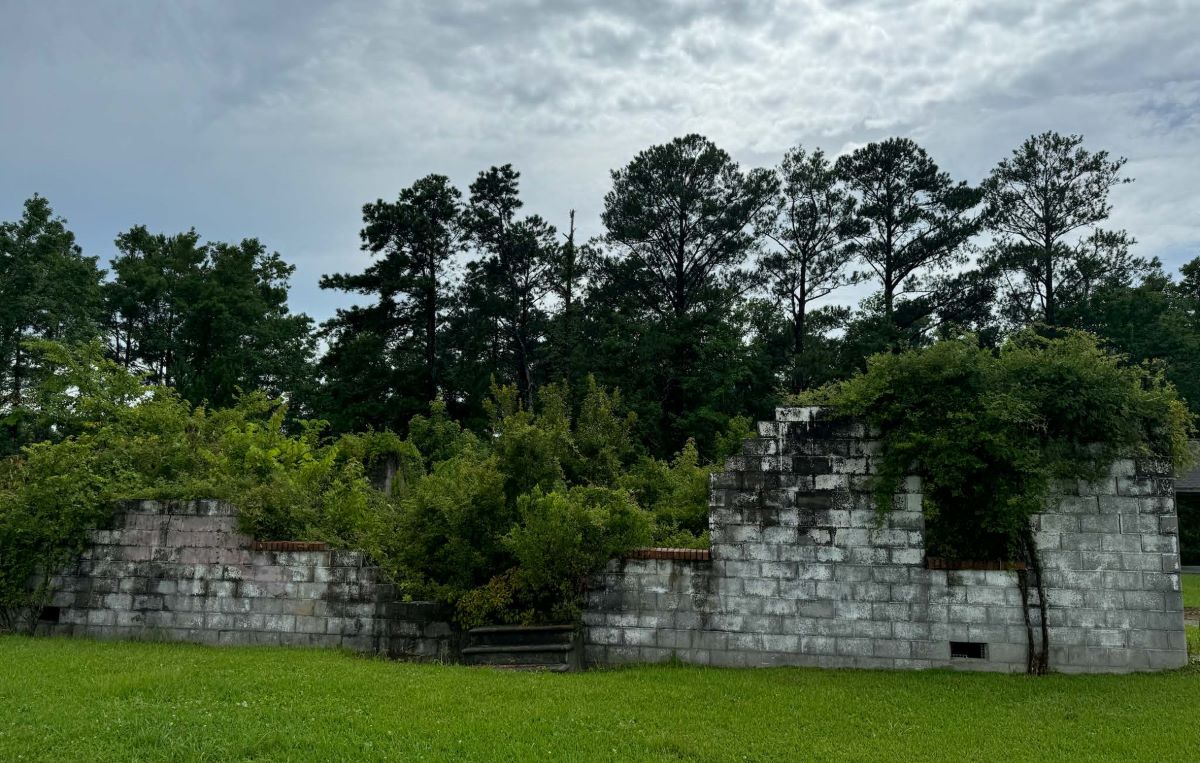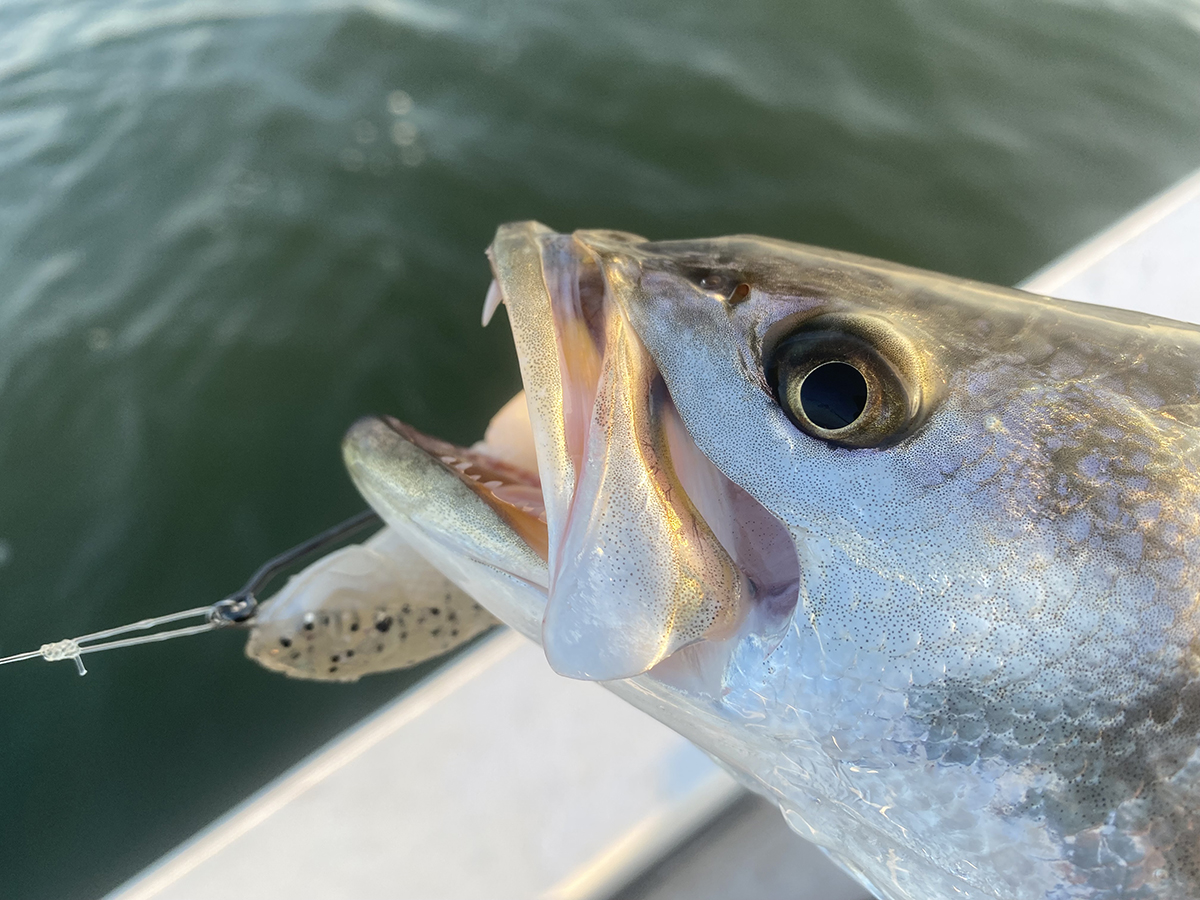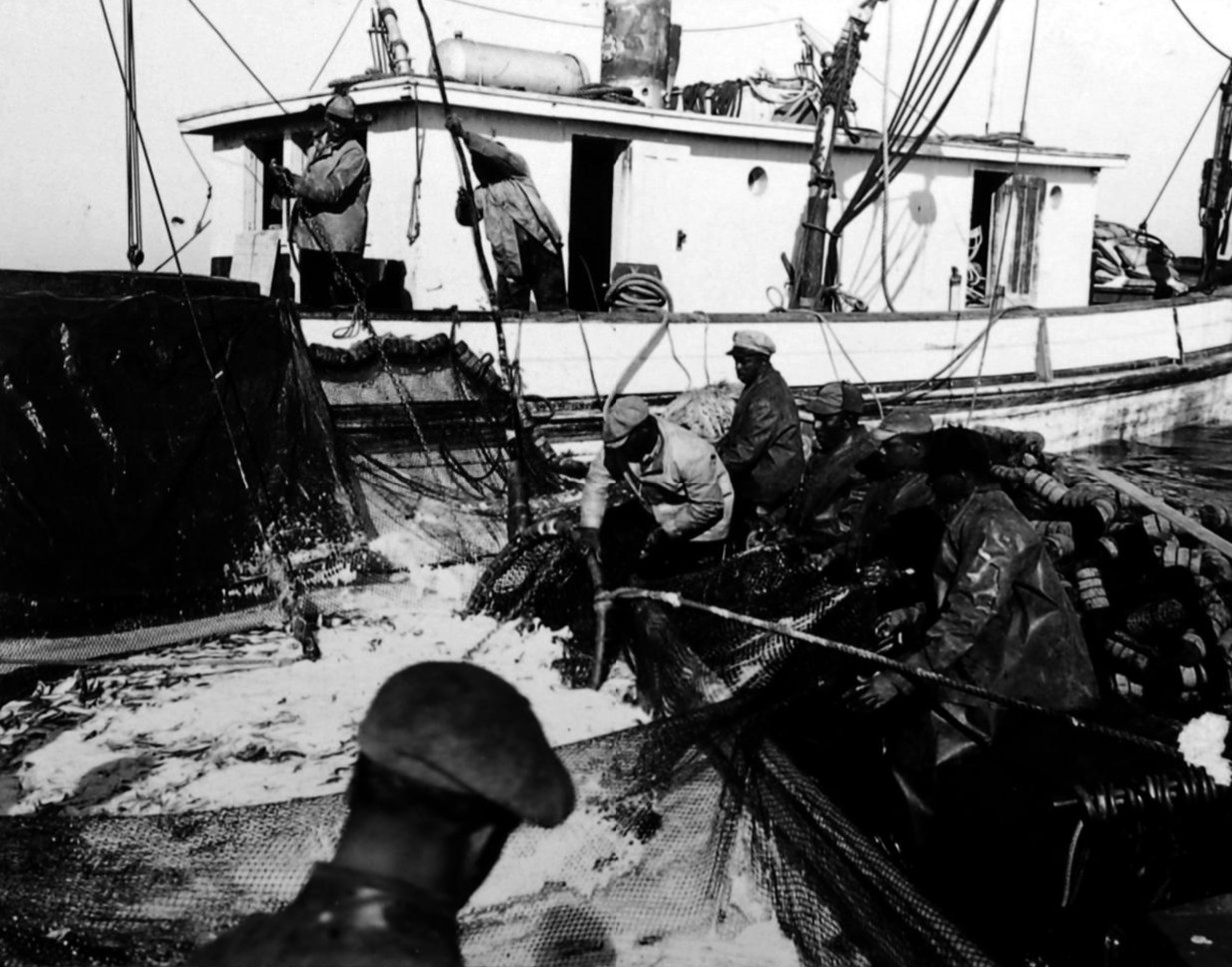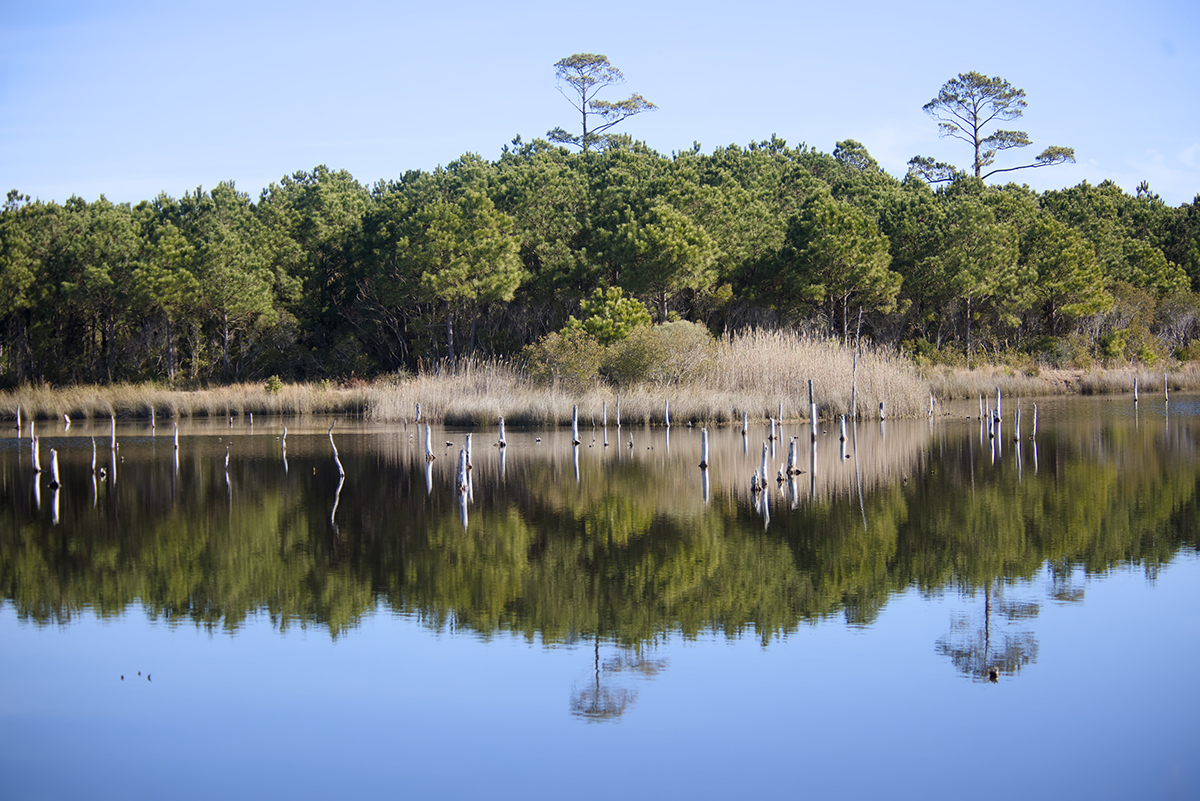
Destructive flooding has plagued Carteret County’s underserved North River community for decades.
The unincorporated area between Beaufort and Havelock regularly experiences inundation linked to high tides and storms. The frequent flooding often disrupts daily life and causes significant damage to property and infrastructure.
Supporter Spotlight
Coastal Carolina Riverwatch, a nonprofit advocacy organization based in Morehead City, has been working with residents here since August 2023 on a comprehensive long-term plan to address these challenges. The group recently released its findings.
The “North River Resilience Project: An Assessment of Resiliency Projects Prioritized by the North River Community” is a 40-page report that “aims to highlight the significant initiatives undertaken to enhance the resilience of the North River community against environmental challenges, particularly flooding.”
The report includes an overview of the community and its residents’ concerns, a statement of goals, a summary of progress made to date and future steps that should be taken.
Riverwatch Executive Director Lisa Rider explained to Coastal Review on Monday that North River’s “critical environmental and quality of life challenges made it a key focus” for the organization’s resilience efforts in 2023 and 2024.
The project is “grounded in community-driven priorities, has identified and pursued solutions that enhance the well-being and sustainability of the area and its citizens,” and not only will “address pressing concerns but also build long-term community resilience and foster science-based solutions that align with the community’s vision.”
Supporter Spotlight
The community, its challenges
Demographics show that the North River community is primarily home to Black residents, with smaller percentages of white and other racial groups. The median household income is generally lower than the state average, and the poverty rate is higher than the national average, “highlighting the economic challenges faced by many residents,” the report states.
Because North River is unincorporated, the coastal community does not have access to any services offered by nearby Beaufort, although it is included in the town’s census data. The county provides limited services but “no communication from the County was provided, after several attempts (in writing and by phone) since November 2023,” the report states.
North River residents encounter “multiple flooding challenges, including sunny day flooding, storm flooding, and the long-term threat of sea level rise.” Also called nuisance or high-tide flooding, sunny day flooding happens when there’s high tides but no precipitation. Heavy rain events, like hurricanes, cause storm flooding, the report continues.
North River is particularly vulnerable to storm surges and heavy rainfall, which have caused extensive damage in the past, and “sea level rise poses a significant long-term threat to coastal areas, resulting in the permanent inundation of low-lying regions, increased erosion, and more frequent and severe flooding events.”
North River Resilience Project
The project was launched about a year ago, after staff had been asked to help with concerns about a proposed fire training facility, that many residents opposed, Rider said.
Residents have wanted their community center, which has been in disrepair for years, to be rebuilt as a “resiliency hub” that could house health and educational services and be an emergency shelter.
The community held a festival in November 2023 when residents discussed the frequent flooding that saturated graveyards, the neglected septic systems, homes and roads, and dilapidated community buildings. This gave insight into the priorities and helped shape a comprehensive approach to project funding and design, the report states. After that, the nonprofit began working with residents at forums, group discussions, events and during community-led monthly meetings that began in December.
“From those beginnings, (the project) evolved into the local community advocating for their needs relative to climate resiliency,” Rider continued. “We came to hear about the fire training facility, but what we learned was much more about the cumulative impacts of sunny day flooding, inequitable solid waste management services, and lack of support for infrastructure improvements.”
Several goals were accomplished and are noted in the report. Riverwatch coordinated with the North Carolina Department of Environmental Quality to develop a StoryMap for North River that provides a centralized digital resource for ongoing information and tools designed to build resilience.
A nonprofit for North River was established to act as a dedicated entity that can apply for funding and manage projects prioritized by the community. Riverwatch provided $3,500 directly to the nonprofit for debris removal, a critical project addressing the accumulation of debris from years of flooding, and another $3,500 was allocated to establish a fund for cash matches required by federal grants, crucial for supporting the community’s resilience goals.
“Since initially reporting out the priorities from the community, these efforts are now serving as a guidebook to highlight projects in need of funding. Today, the community has a prioritized project that is now grant-funded, and the community has funds in the bank for any cash match requirement on future grants,” Rider said.
Rider continued that Coastal Carolina Riverwatch built strong connections with community members and leaders by participating in community events like festivals and hosting workshops. The monthly meetings and StoryMap/WIP tools help keep the community informed and actively engaged.
“One of the key benefits of this initiative is that it brings expert volunteers into the community to conduct the scientific work necessary to meet North River’s goals, whether it’s related to water quality, flooding, or environmental resilience,” Rider said. “Collaborative relationships with state agencies and academic institutions also ensure that North River residents have access to technical expertise and resources.”
Residents “advocated for change in their community, and we were listening. The community members’ dedication to protecting their quality of water and quality of life for now and future generations is a true testament to how projects like this can be successful,” Rider said.
Moving forward
Rider said the organization will continue working with to address environmental concerns and “we are looking forward to expanding our efforts within other communities in the White Oak River Basin that could benefit from such a partnership.”
Rider noted that the organization only goes where it is invited and works behind the scenes to support community members in the White Oak River Basin experiencing impacts to the quality of water and quality of life.
“I want to emphasize that the North River Resiliency Project is deeply rooted in elevating the voices of the community and addressing the systemic challenges they’ve faced for generations. Our goal is to ensure the people of North River are heard and empowered to lead the solutions,” she said. “Ultimately, this is about creating a more resilient future for North River, one that centers on the voices and needs of the people who call it home.”
North River residents can reach Rider directly, or simply learn more about the organization’s advocacy, by emailing Waterkeeper@coastalcarolinariverwatch.org.







